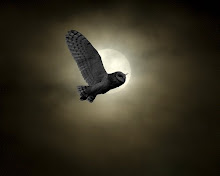I've read a fair bit of poetry in my time, enough to know that some of it I love, and some of it I most certainly don't. Tennyson's 'Ulysses' is perhaps my favourite poem of all time along with Eliot's 'The Love Song of J. Alfred Prufrock', along with almost anything else by Eliot. I also enjoy the works of Carol Ann Duffy, and the last collection that I read and absolutely loved was Daljit Nagra's Look We Have Coming to Dover, if you get a chance to read it I highly recommend that you do. If you're curious about my dislikes in this field, I don't have much time for the poets of the mid 20th Century, well received though they generally are Plath and Larkin have a way of getting under my skin and irritating me.
I also love the satiric poetry of the early Eighteenth century, and the bawdy jokiness that turns up in many Renaissance works.
So, I hear you cry (nay, plead), when is the rant going to being, so far this has been a veritable love fest of poetry, please oh please, give us some hate.
Well, since you asked so nicely I have to say that my number one pet peeve, as far as poetry is concerned, is the amateur poetry that people post on Facebook. Let's start with the positive, it is good that these people clearly have a creative instinct, that they want to write, that they feel comfortable enough with their friends to post these things containing often quite revealing emotions. These are all good things and should certainly not be discouraged, but I can't help but get the feeling that these people do not proof read their writing, that they can put into words what Wordsworth described as a 'spontaneous overflow of powerful feelings' and that will be sufficient to create poetry. I'm sorry but it's not.
And, I hate to say it, it is the Romantics' fault, Wordsworth and Coleridge in particular, in creating this idea of the spontaneous overflow, the image of the lonely poet communing with nature (see the picture below) they
created an image that has stuck in public consciousness for over 160 years, and yet to think of poetry as such is still an huge misreading of the Romantic manifesto.
My point is that one does not do a preliminary sketch and call it a painting, nor come up with a melody and call it a song, we don't write our first draft and call it an essay and only a fool would write a blog entry and publish as soon as he's finished (yeah, sorry about that). So why write a poem and spend no time on editing, on creating any rhythm or meter if that's what you want (or painstakingly removing it if you don't), poetry is still an art form, and I don't mean that in any exclusive way, art should be for everybody, I don't approve of art that excludes people (good old Modernism!) but it still should be treated with respect. If you want to write a poem that's grand but write as if you were writing a symphony, feel what works and what goes together, what feelings they convey. Don't just sit on the piano keys playing a triangle, whilst conducting the brass section with you feet and call it a symphony.
Thank you for reading, with a bit of luck the next one won't be a rant, but here's some amazing poetry:
'Come, my friends,
'Tis not too late to seek a newer world.
Push off, and sitting well in order smite
The sounding furrows; for my purpose holds
To sail beyond the sunset, and the baths
Of all the western stars, until I die.
It may be that the gulfs will wash us down:
It may be we shall touch the Happy Isles,
And see the great Achilles, whom we knew.
Though much is taken, much abides; and though
We are not now that strength which in the old days
Moved earth and heaven; that which we are, we are,
One equal-temper of heroic hearts,
Made weak by time and fate, but strong in will
To strive, to seek, to find, and not to yield.'
'Tis not too late to seek a newer world.
Push off, and sitting well in order smite
The sounding furrows; for my purpose holds
To sail beyond the sunset, and the baths
Of all the western stars, until I die.
It may be that the gulfs will wash us down:
It may be we shall touch the Happy Isles,
And see the great Achilles, whom we knew.
Though much is taken, much abides; and though
We are not now that strength which in the old days
Moved earth and heaven; that which we are, we are,
One equal-temper of heroic hearts,
Made weak by time and fate, but strong in will
To strive, to seek, to find, and not to yield.'
'Ulysses', by Alfred Lord Tennyson


I will ignore the dig on Modernism (mainly because it is mostly true!) and I will agree with you on the Facebook poetry argument. Oh, and on Plath and Larkin. I almost feel sorry for Ted Hughes being so often paired with Plath - and what is it with pairs!! Wordsworth-Coleridge, Yeats-Eliot, Hughes-Plath...I don't like this binary thing going on! Damn you critics....
ReplyDelete